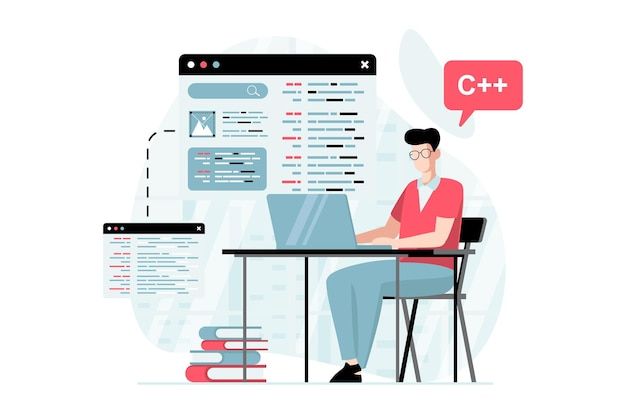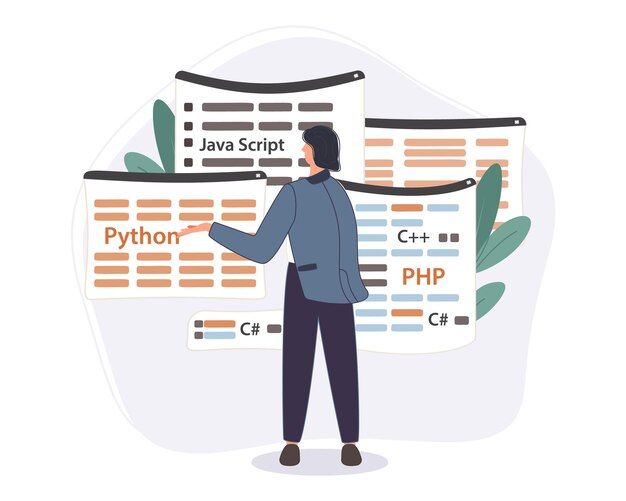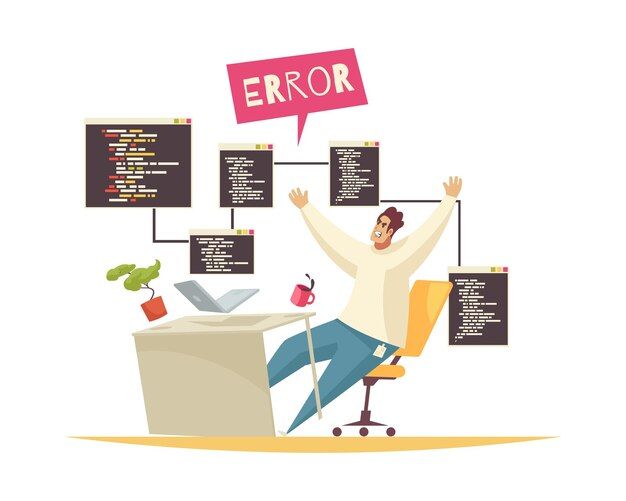C plus plus
C plus plus
Unit 1

C++ Operators
Operators in C++ Arithmetic Operators , Relational Operators , Logical Operators , Bitwise Operators , Assignment Operators , Unary Operators, Conditional Operators.
24 March 2024
Read more

What are Data types in C++
In C++, data types are classifications that specify which type of data a variable can hold. Data types in C++ help ensure type safety and memory allocation.
26 March 2024
Read more

Functions in C++
functions are self-contained blocks of code that perform a specific task. Functions in C++ allow you to break down your code into smaller, manageable parts.
24 March 2024
Read more

C ++ OOPs (Object-Oriented Programming) Concepts
OOPs in C++ allow you to define classes, create objects, and implement the core OOP concepts like Abstraction, Encapsulation, Inheritance, and Polymorphism.
24 March 2024
Read more
Unit 2

Friend Function in C++
In C++, a friend function is a function that is not a member of a class but is granted special access to the private and protected members of that class.
24 March 2024
Read more

Composition in C++
Composition is a strong has-a relationship where one class contains another class as a fundamental part. Composition allows for encapsulating the behavior
26 March 2024
Read more

Call by value and call by reference in C++
Call by value and call by reference are two different ways to pass arguments to functions in C++. Call by value works with copies of arguments while call by reference.
26 March 2024
Read more

Access Specifiers in C++ Example
In C++, access specifiers control the visibility and accessibility of class members (variables and functions) from outside the class Public, Private and Protected.
24 March 2024
Read more

Static Member Function in C++
In C++, a static member function is a member function of a class that is associated with the class itself rather than with individual instances (objects) of the class.
24 March 2024
Read more

Constructors in C++
Constructor in C++ is a special member function used to initialize an object when it is created. Constructors have the same name as the class and do not have a return type.
24 March 2024
Read more
Unit 3

Virtual base class in C++
Virtual base classes in C++ are essential for resolving ambiguity and eliminating redundant copies of common base class members in complex class hierarchies.
24 March 2024
Read more

Aggregation in C++
Aggregation in C++ represents a relationship where one class contains another class as a part, creating a "has-a" association. It allows objects of one class..
26 March 2024
Read more

Virtual Function in C++
In C++, a Virtual function is a class member function declared using virtual keyword in the base class and can be overridden by derived classes.
24 March 2024
Read more

Pure Virtual function and Abstract Class in C++
Pure virtual function is a special type of virtual function that is declared in an abstract base class but has no implementation in that class. An abstract class
24 March 2024
Read more

Inheritance in C++
In C++, inheritance is a fundamental OOP concept that enables you to create new classes based on existing classes. Types of Inheritance in C++
24 March 2024
Read more

Operator Overloading in C++
Operator overloading in C++ allows you to define custom behaviors for operators when applied to objects of user-defined classes.
24 March 2024
Read more
Unit 4

What is File handling in C++?
File handling in C++ refers to the ability of a C++ program to read data and write data to files. File handling with external files, such as text files, binary files.
24 March 2024
Read more

Exception Handling in C++
Exception handling in C++ is a mechanism that allows you to deal with unexpected or exceptional situations that may occur during the execution of a program.
24 March 2024
Read more

Templates in C++
Templates are a fundamental part of C++'s support for generic programming. Types of Templates in C++ Function Template Class Template.
14 March 2024
Read more